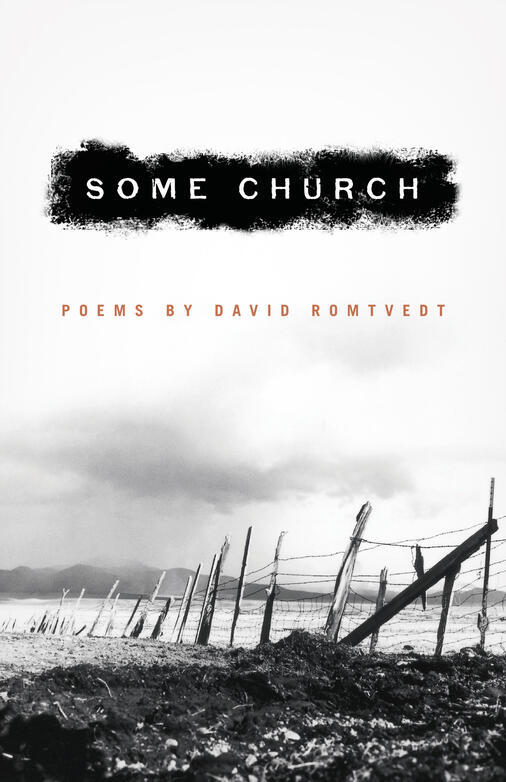
Some Church
In Some Church, David Romtvedt defines the intersection of a person’s political, social, and spiritual life. Offering perspectives both intimate and expansive in nature, these poems are informed by Romtvedt’s world—both the immediate, rural landscape of his home in Wyoming, and by sociopolitical forces outside his control. In a voice that ranges from ambling to angry, Romtvedt captures the essence of the American West in the tradition of Robert Frost, William Carlos Williams, and Allen Ginsberg.
In these poems, Romtvedt pulls together the absurd details and grievances of life: a dying neighbor whose tree is occupied by vultures, a daughter who is tear-gassed at a peace rally, the march of pickup trucks headed for a Bob Dylan show, even a yellow rubber figurine of the Buddha with a cell phone; all are fodder for his poetic imagination. Above all, these poems speak to an American consciousness, both at home and abroad, and an arching dedication to personal obligations.